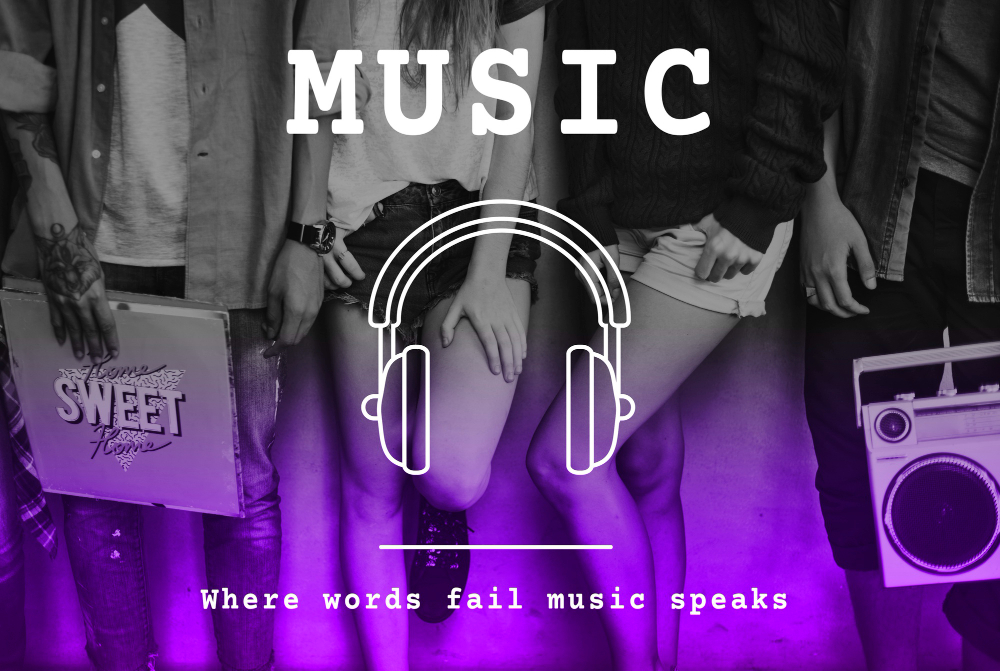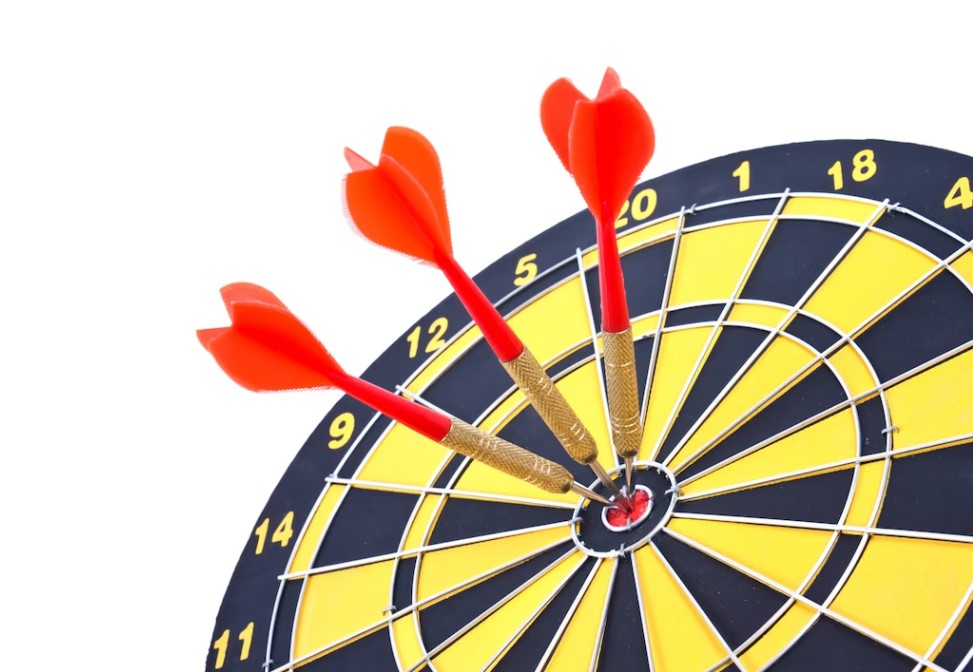How to Effectively Promote Your Music on Social Media

Social media has revolutionized the way musicians promote their music. In the past, getting your music heard by a wider audience meant performing at as many gigs as possible or hoping that your music would get picked up by a major record label. But now, with social media, musicians have a direct line to their fans and can promote their music easily and effectively.
However, simply creating a social media account and posting your music isn't enough to gain traction and grow your fan base. You need to know how to effectively promote your music on social media to maximize your reach, engagement, and ultimately, your success. In this post, we'll share expert tips and strategies on how to promote your music on social media like a pro.
Know Your Audience
Knowing your audience is an essential step to effectively promote your music on social media. To understand your audience, start by analyzing your current fan base. Look at the demographics of your followers, including age, gender, location, and other key factors. You can gather this information through social media insights or by conducting surveys.
Additionally, social media analytics can provide valuable information about your audience. Look at engagement rates, reach, and other metrics to gain insight into what type of content resonates with your audience. This data can help you tailor your content to better meet their interests and preferences.
Another way to understand your audience is by engaging with them directly. Respond to comments and messages, ask for feedback, and conduct polls to get a better understanding of what your followers like and dislike. This engagement can also help you build a deeper connection with your audience and foster a sense of community around your music.
Be Consistent

Consistency is key when it comes to promoting your music on social media. One way to achieve consistency is by creating a content calendar. This involves planning ahead and scheduling your posts in advance. A content calendar can help you stay organized and ensure that you have a consistent stream of content.
Start by deciding how often you want to post on each platform. For example, you may want to post daily on Instagram, but only once or twice a week on Facebook. Then, create a schedule for each platform and plan out your content for the next week, month, or even several months in advance.
Scheduling tools can also help you save time and ensure that your posts are published at the right time. Many social media platforms have built-in scheduling features, or you can use third-party tools such as Hootsuite or Buffer. By scheduling your posts in advance, you can ensure that your content is published consistently, even if you're busy or unable to post in real-time.
Consistency is also important when it comes to your branding. Use consistent colors, fonts, and imagery in your social media posts to help build brand recognition and create a cohesive aesthetic. Develop a branding strategy that reflects your music and personality, and stick to it across all platforms. This will help you build a strong brand presence and create a recognizable visual identity for your music.
In addition, it's important to stay engaged with your audience to maintain consistency. Respond to comments, messages, and feedback regularly to keep the conversation going. This can help you build a relationship with your audience and keep them engaged with your content.
Use Visuals
Visual content is a crucial element of any successful social media strategy, especially when it comes to promoting your music. The following are some useful tips for incorporating visuals in your social media efforts:
Ensure that you use high-quality images.
In today's digital age, a single photo can capture a person's attention and convey a message. As a result, it's critical to make a strong impression with a high-quality image. Utilize professional photography or graphic design tools to create visually appealing and attention-grabbing images. Additionally, make sure your images are clear, well-lit, and visually appealing.
Incorporate videos into your social media campaigns.
Videos are a powerful medium that can engage and connect with your audience in a way that static images can't. Use videos to provide an inside look into your creative process, showcase your live performances, or share your music journey. Additionally, use videos to showcase your personality, communicate your message, and promote your music.
Utilize visual storytelling techniques.
Telling a story through visuals can be a powerful way to engage and connect with your audience. Consider creating a visual narrative that showcases your music journey, the creative process, or your live performances. Use visuals to showcase the emotions, experiences, and people behind your music.
Be consistent with your visual branding.
It is critical to have a recognizable visual identity across all your social media platforms. Utilize a consistent color palette, fonts, and imagery to ensure your audience recognizes your content across all platforms. Develop a branding strategy that reflects your music and personality, and stick to it across all platforms.
Engage With Your Audience

Engaging with your audience is essential to building a loyal fanbase and promoting your music effectively on social media. Here are some tips for engaging with your audience:
Respond to comments and messages.
It's critical to engage with your audience by responding to comments and messages promptly. This demonstrates that you appreciate and value your fans' feedback, and it can help you build a strong connection with them.
Host live Q&A sessions.
Live Q&A sessions on social media platforms can be a great way to engage with your audience and answer any questions they may have about your music, creative process, or personal life. Additionally, live sessions can help you showcase your personality, and build a more personal connection with your audience.
Create interactive content.
Interactive content can be a powerful way to engage with your audience and build excitement around your music. Consider running contests, polls, or quizzes related to your music or your personal life. Additionally, encourage your audience to share their opinions or experiences related to your music.
Collaborate with other artists and brands.
Collaborating with other artists or brands can help you reach new audiences, gain exposure, and engage with your existing fanbase. Consider collaborating with other artists on joint projects, or partnering with brands that align with your music and personal brand.
Show appreciation for your fans.
It's important to show your fans that you appreciate their support. Consider sharing fan-generated content, such as fan art or covers of your songs, or hosting fan appreciation events. Additionally, consider offering exclusive content or discounts to your most loyal fans.
Utilize Paid Advertising
Paid advertising refers to the practice of paying to promote products, services, or brands through various forms of advertising, such as search engine ads, social media ads, display ads, or sponsored content.
Utilizing paid advertising can be an effective way to increase brand visibility, reach new audiences, and drive traffic and sales. Paid advertising offers a targeted approach, allowing brands to reach specific demographics, interests, or behaviors, and to track the effectiveness of their campaigns through metrics such as impressions, clicks, and conversions.
To utilize paid advertising effectively, brands should first identify their target audience, as well as the channels and formats that are most likely to reach that audience. They should then develop creative and compelling ad content that speaks to the interests and needs of that audience, and set clear goals and budgets for their campaigns.
Once campaigns are launched, ongoing monitoring and optimization are essential to ensure that they are performing as intended. This may involve adjusting targeting criteria, testing different ad formats or messaging, or refining landing pages or conversion funnels.
Leverage User-Generated Content

Leveraging user-generated content (UGC) refers to the practice of utilizing content created by consumers or users of a particular product, service, or brand to promote that product, service, or brand.
In other words, instead of a brand creating all of its own marketing materials, it can use content that its customers or followers have created and shared online, such as social media posts, reviews, photos, videos, or blogs, to promote the brand. This approach can be especially effective because it allows for authentic, real-life experiences to be shared, which can be more relatable and trustworthy than traditional advertising.
To leverage user-generated content, brands can encourage their followers to create and share content related to their brand or product by using specific hashtags, hosting contests, or asking for reviews. Brands can then curate and showcase the best user-generated content on their own social media channels or website, which can help to build brand loyalty, increase engagement, and ultimately drive sales.
Encourage your fans to create and share UGC by hosting contests, asking for reviews or feedback, and featuring fan content on your social media channels. Not only does UGC help promote your music, but it also helps strengthen your relationship with your fans and builds a sense of community around your music.
Measure and Analyze Your Results
Measuring and analyzing results is a crucial step in any marketing or business strategy. It involves tracking and evaluating the success of specific marketing campaigns, initiatives, or business goals, in order to identify what works well and what needs improvement.
The process of measuring and analyzing results typically involves setting clear goals and objectives at the outset, such as increasing website traffic or sales, and then tracking key performance indicators (KPIs) that are relevant to those goals. For example, KPIs for website traffic might include page views, unique visitors, or bounce rates, while KPIs for sales might include conversion rates, average order value, or customer lifetime value.
Once the relevant KPIs have been identified, data can be collected using tools such as web analytics platforms, social media monitoring tools, or CRM systems. This data can then be analyzed to identify trends, patterns, or areas for improvement, which can inform future marketing or business decisions.
In order to effectively measure and analyze results, it's important to have a clear understanding of the data being collected, as well as the context in which it is being collected. This requires careful planning and ongoing monitoring, as well as a willingness to adapt and adjust strategies as needed based on the results of analysis.
Additionally, ask for feedback from your fans and followers. What type of content do they enjoy? What do they want to see more of? This information can help guide your future promotions and ensure that you're providing value to your audience.
As you can see, social media has made it easier than ever for musicians to promote their music and grow their fan base. By following these expert tips and strategies, you can effectively promote your music on social media and increase your reach, engagement, and success as a musician. Remember to know your audience, be consistent, use visuals, engage with your audience, utilize paid advertising, leverage user-generated content, and measure and analyze your results. With these techniques, you can take your music promotion to the next level and achieve your goals as a musician.
--------------------------------------
ZapMyWork.com is your one-stop shop for all your freelance needs. We are an online marketplace that connects clients with skilled and talented freelancers from around the world. One of the things that sets us apart from other freelance marketplaces is our rigorous screening process. We carefully vet all of our freelancers to ensure that they have the skills and experience to deliver high-quality work, one project at a time. Let us know how we can help you today!
Recent Posts
-
04/26/2024Thriving Through Flexibility: How FlexiConsulting Found Success with ZapMyWork
-
04/19/2024Flourishing Home Trends: How "ZapMyWork" Became the Cornerstone of Our Interior Design Success
-
04/15/2024Weaving Success with ZapMyWork's Freelance Marketplace
-
04/12/2024Streamlining Project Management in Small Businesses: The ZapMyWork Experience with ClearVision Consulting
-
04/10/2024Transforming Toy Design with Electronics Engineering Freelancers: A Case Study on ToyInnovate
Store Address
Information
Copyright © 2022 - Present. ZapMyWork, LLC. All Rights Reserved




